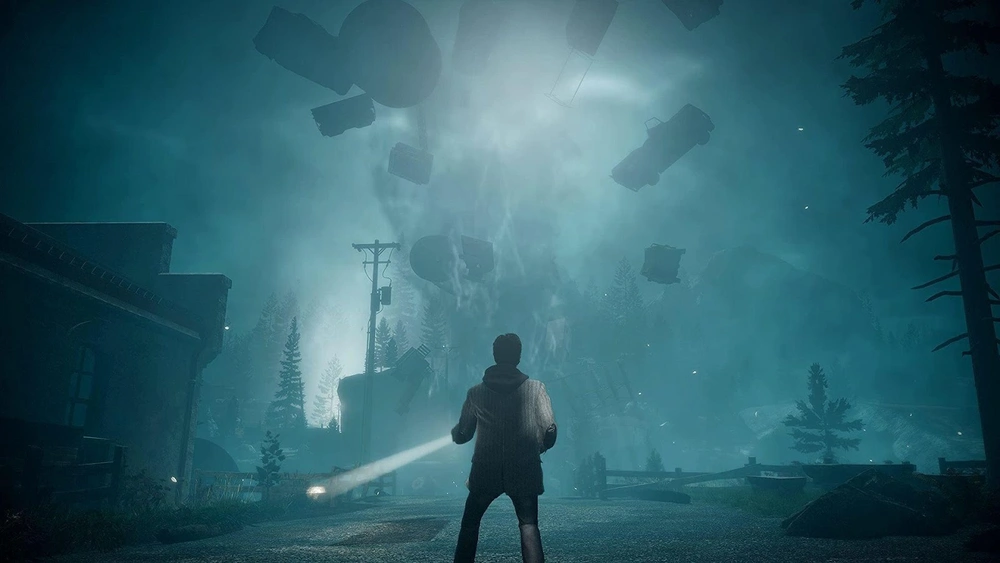The year 2022 proved to be a more interesting period in the video game industry than the previous two years. Why? Three factors influenced it, led by the huge success of the Elden Ring.
Key Year. This word – if I had to use just one – could define the year 2022 in the gaming industry. That being said, it’s not a stretch to say that there has been any revolution or even evolution. We’ve only seen a clear improvement over the previous two years. In fact, you could even consider that the last few months have worked out slightly better for players than the entire period since 2019.
The effects of the coronavirus pandemic are almost imperceptible, and while some developers are still struggling with issues caused by the war in Ukraine, the industry as a whole is back on its feet. This is evidenced by the plethora of games released, including some really big titles that weren’t available in 2020 and 2021, as well as the prospect of many highly anticipated premieres. While there are still some sore spots that give players a few sleepless nights, they can safely be treated as the prose of everyday life.
In the shade of the golden tree
It’s hard to argue with statistics. So with complete certainty – aside from my own preferences – I can write that the Elden Ring dominated 2022. FromSoftware’s work won over 350 Game of the Year titles and left its competitors far behind. Suffice it to say that second on the list, God of War: Ragnarok, didn’t get a hundred of them, and those awarded to anticipated productions like West’s Horizon: Forbidden or A Plague Tale: Requiem can be counted on the fingers of both hands.
While privately I’m extremely happy about the huge success of Elden Ring, I’m even more excited and positive that finally – after a long hiatus – a AAA game has been released. Whatever it’s called, the kind that doesn’t come off the lips of players despite the months that have passed since its release. Previous games that have managed to do this include Cyberpunk 2077 The Last of Us: Part II from 2020 and Red Dead Redemption II from 2018. That’s a bit much, right?
Premiere delays
Thankfully, the coming months should change that. They should bring games like Alan Wake 2, Assassin’s Creed: Mirage, Baldur’s Gate III, Diablo IV, Final Fantasy XVI, Hogwarts Legacy, Marvel’s Spider-Man 2, STALKER 2: Heart of Chernobyl or Starfield, to name a few. Such a large cluster of premieres of highly anticipated productions has something to do with 2022, specifically the numerous slides that many of them have had. Even Elden Ring shared this fate, though FromSoftware delayed its debut by only five weeks.

On the one hand, one could speculate that creators have begun to blow off deadlines en masse because of the pandemic – while at the same time believing that this problem will gradually fade away. However, I think it’s broader than that and goes deeper. In short, production times have increased and production costs have increased. Of course, player demands have not decreased – quite the opposite. As a result, AAA game design has become more risky than ever before. By the way, a lot of interesting premieres came out in the field of gambling. Today online casino payment methods allow you to replenish your account in a couple of seconds, and on the showcases of gambling clubs, you can find many games with instant payouts.
Of course, this does not mean that high-budget games will suddenly stop being created. However, we can expect the intervals between the premieres of big productions like Red Dead Redemption II, The Last of Us: Part II, Cyberpunk 2077 or Elden Ring to increase even further, with delays like those from 2022 on the agenda. We should also consider a scenario where there is a string of months between really “fat” periods, only good or not bad for that matter. In other words, in a few years, we’ll be able to look back on 2022 with warmth – just as we look back on 2018 now, because the premiere calendar will resemble that of 2021, when Resident Evil Village, Deathloop, Halo Infinite or It Takes Two came out, which are far from outstanding.
Technological stagnation, price fears
While the above changes were somehow dictated by the overall development of the gaming industry, there is a kind of stagnation in 2022 in terms of technology. While there are newer processors and graphics cards on the market, they are very expensive indeed. That said, the availability of newer models does not mean that older components can be purchased at attractive prices. Therefore, the two most popular graphics systems among Steam users remain several years old: NVIDIA GeForce GTX 1650 and NVIDIA GeForce GTX 1060.
The assembly of a good gaming computer currently costs at least 120 thousand rubles – provided that you have all the necessary peripherals. Therefore, the purchase of a ninth-generation console is seen as a reasonable alternative. True, the prices of PlayStation 5 and Xbox Series X and S are not falling either – moreover, in the case of Sony equipment, they have even increased slightly, but the amount of about 60 thousand that you will have to pay for them is half the cost of a decent PC.
Perhaps that’s why both of these consoles have trouble running games at over thirty frames per second. Initially, it seemed like 30 FPS was a relic of the PS4 and XOne era, but the recently released A Plague Tale: Requiem and Gotham Knights proved that it’s still sometimes an unpleasant reality. It’s possible that their creators simply didn’t take care of proper optimization on PS5 and XSX/S. Nevertheless, the performance of these games can be seen as an indicator that consoles that debuted just over two years ago are already a bit outdated and require the player to compromise… or buy new, more powerful hardware as soon as it becomes available. It turns out there’s a reason why rumors of an improved version of the PS5 are becoming more and more concrete.
The prospect of replacing gaming devices in short order and the rising price of games – have fans of electronic entertainment looking beyond 2022 with mild apprehension. On the one hand, that’s right, because playing the promising titles I’ve mentioned may require digging into your pocket – even when you consider that many future games will be available via subscription, such as Xbox Game Pass. On the other hand, the industry’s awakening from its lethargic slumber could lead to bigger changes, including in hardware prices. For the better? That remains to be seen.












